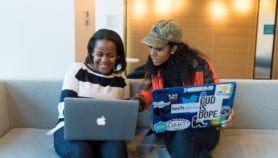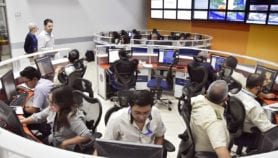Send to a friend
The details you provide on this page will not be used to send unsolicited email, and will not be sold to a 3rd party. See privacy policy.
The Association of African Universities has called for African leaders to use the end of a monopoly on a submarine communications cable to provide cheaper Internet access for students.
The SAT-3 submarine communications cable — which runs from Europe down Africa’s west coast — is currently monopolised by a consortium of state-owned and private telecommunications providers in different countries, and pricing structures have been the subject of criticism.
That monopoly ends in June, which could open up internet access for west African nations.
Information and communication technology (ICT) initiatives in African universities are suffering due to expensive, slow and limited connectivity, says Akilagpa Sawyerr, the executive secretary of the Ghana-based Association of African Universities (AAU).
“In our universities you’ve got 18,000 students and 1,000 teachers using the same amount of bandwidth as an American household,” said Sawyerr at a conference on African development at the UK-based Open University last week (16–17 May).
“The more people that use it, the slower it works. And because of the monopoly pricing in Africa, that university will pay 50 times more per unit than the American household.”
Sawyerr says the association needs to persuade governments that ICT programmes will not work without connectivity and effective networks between universities.
Rather than looking at expensive satellite Internet services as a solution, west African universities should be accessing the SAT-3 cable, he says.
“The monopolies run out in June and it is very important that before our governments renew their licenses we persuade them that these companies could give away a portion of their lines at a discounted rate to us,” Sawyerr said.
“We need those who are making the choices at higher levels to realise that it would cost them quite little and make a difference.”
He said the AAU is keen to work with other African organisations to lobby governments to this end.
But lobbying governments to make access to the SAT-3 communications cable cheaper may not necessarily make the Internet more readily available, says Adebayo Ore, a systems analyst at the University of Lagos, Nigeria.
Ore told Scidev.Net their current network is limited because not all sections of the university have enough computers to connect to the network. Also, Internet access is only available to the heads of departments and to researchers, not to students.
Sunday Akinseloye, also a systems analyst at the University of Lagos, says the launch of the Nigeria communication satellite, NIGCOMSAT-1 (see Satellite launches boost African communications), may be another option for cheap Internet access.












